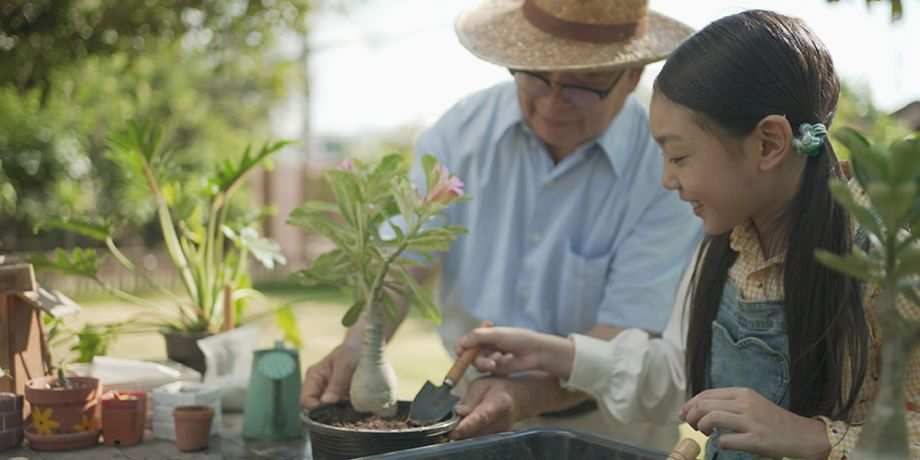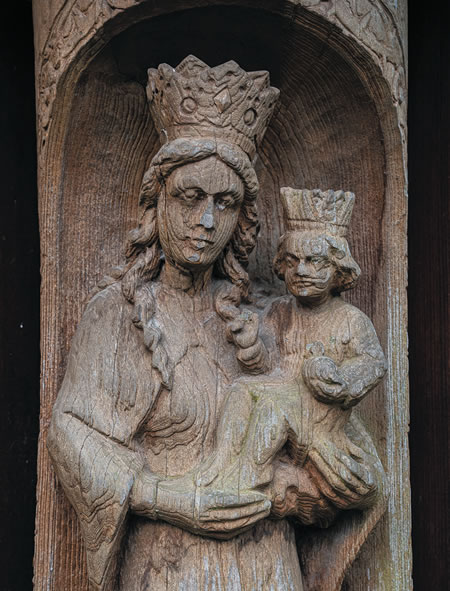
Some words in Japanese are hard to translate. The reason is that there are many, many years of cultural feeling and experience behind the words.
One such word in Japanese is “Ikigai.” The dictionary gives the English meaning as: “Something that gives meaning and worth to one’s daily life.” One commentator says “Ikigai” has three elements: what one loves, what one can do, and what the world wants.
Here are some examples of “Ikigai” from my own experience.
 The Yokohama Diocesan Liturgy group advised us to create a bright, welcoming atmosphere at the entrance of our churches as preparation of the heart to pray the Mass.
The Yokohama Diocesan Liturgy group advised us to create a bright, welcoming atmosphere at the entrance of our churches as preparation of the heart to pray the Mass.
I thought of Tanaka-san. Mrs Tanaka was an elderly widow who had a skill in writing Japanese characters with brush and charcoal ink. I asked her to write a very short sentence giving the theme of the Sunday’s scripture readings. Her delight at this request was encouragement to me. We posted this theme sentence at the entrance to the church. But as we entered the third cycle of the Scripture readings Mrs. Tanaka’s legs and heart were giving her trouble. Some parishioners said it was too much for her and advised me to get a replacement.
So I went to Tanaka-san to gently relieve her. When she got the gist of what I was aiming at, she cried out in a voice from the heart. “Oh Father! Don’t take this away from me. It is my Ikigai. It not only gives me interest and purpose in my week, but also keeps me in contact with the words of Jesus. Please let me keep writing.” That is “Ikigai.”
In another instance, a man I received into the community is a professional sculptor. I have often been to his atelier. It specializes in people playing musical instruments and also animals. So his works are displayed in halls and parks throughout Japan. These carvings are for his family as living expenses. But he is also carving a statue of Mary and Child. “This, he says, is my Ikigai. This keeps me going for my other works.”
And just last month I heard this meaning-loaded word again. Recently a young couple came with their four-month-old baby. The mother said that she would like to belong to the same religion as her husband. She had eight months maternity leave, could she receive instruction. The mother seemed to me to be a bit lonely. Her husband, like all company men, works long hours. So I asked 80-yearold Hikari-san to lead her to the font. Mrs. Hikari has a delightful grandmotherly touch that I thought suited the young mother and child. After a few weeks I asked Mrs. Hikari’s daughter if the weekly instruction was too much for her mother. The answer: “Not at all! It is her Ikiga. She loves it. It gives her purpose and meaning.”
From here on I speak as a 90+ year-old to my fellow senior citizens of the Kingdom. Try to develop a special interest, an “Ikigai” in your life. I have personally found, and observed in other Christians, that the effect of this special interest goes deeper when it is connected in some way with the Kingdom of God and its works of kindness to others.
And to our younger generation I ask this. Do not classify us seniors as “passed selling date.” Give us some minor but useful task within our ability. We might surprise you! Such a task can give us new life, enthusiasm, peace, and yes, even health. When the task is some help to others and for the Kingdom, it brings us closer to Christ.
Columban Fr. Barry Cairns lives and works in Japan.